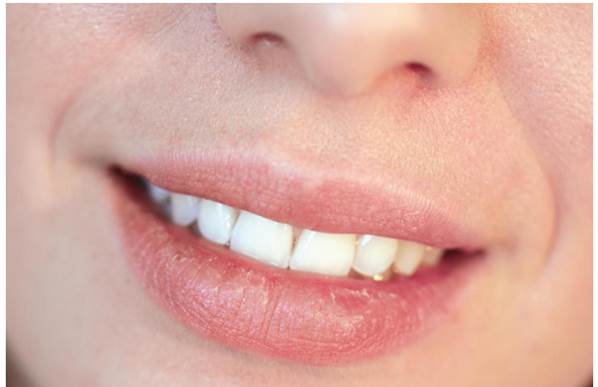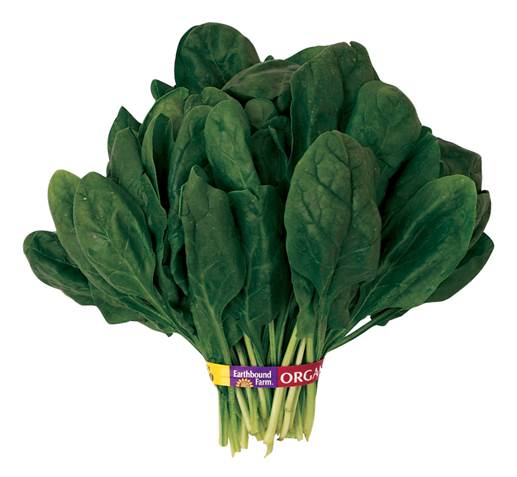Functional failure can sometimes turn up
mysteriously.
It is said that diets that comprised
processed foods tended to cause vitamin deficiencies. That’s because we didn’t
eat the recommended amount of necessary foods or absorb foods rightly, which
can due to digestive issues. You may not have any disease but, your functions
will get depressed as vitamins are main factors that take part in every
biochemical reaction in the body. We need them to help our bodies work
precisely.
The followings are 5 abnormal signs that
can previse your vitamin deficiency. The good news is that most of those signs can
be bridged over by changing the diets. However, if food treatments are not
efficient, you should see a doctor.
Sign 1: Chaps on the corners of the mouth

Chaps
on the corner of the mouth tend to happen when you were vegetarians, provided
little iron ad B12.
Deficiency:
iron, zinc, B-group vitamins like niacin (B3), riboflavin (B2), and B12.
The situation tended to happen when you were
vegetarians, provided little iron ad B12. The situation also happens when the
diet is seriously lack of proteins that are necessary for the immunity establishment.
How to fix:
eating more poultry, salmon, tuna, eggs, oysters, clams, dried tomatoes, Swiss
chard, sesame butter, peanuts and other beans like lentils.
Vitamin C helps improve iron absorptions
and prevent infections. Therefore, we should combine those foods above with
vegetables like broccoli, red bell peppers, kales and cauliflowers.
Sign 2: Eruption, scales on the face (on other areas
sometimes) and hair loss.
Deficiency: Biotin
(B7) which is known as a vitamin for hair. Your body can store fat-soluble
vitamins (A, D, E, K) but can’t store most of water-soluble vitamin B. athletes
should take notice of eating raw eggs because it can make you face with the
situation: there’s a protein in raw eggs, avidin, that can prevent the body
from absorbing biotin.
How to fix:
eating cooked eggs (cooking can disable avidin), salmon, butter, mushrooms,
cauliflowers, soy, seeds, raspberry and bananas.
Sign 3: Swelling areas that look like red or white acne
and often appear on cheeks, arms, thighs and butts.

Bell
pepper can be a good vitamin A supplement.
Deficiency:
essential fatty acid and vitamin A, D.
How to fix:
abstain from foods that contain unsaturated fats, metabolic fat and increase
eating healthy fat. Eat more salmon and sardine, hard-shell nuts like walnuts
and almonds, seeds like flaxseed and hemp seed. To have vitamin A supplements,
you should eat green-leaf and colorful vegetables like carrot, sweet potato and
red bell pepper.
Those foods provided beta carotene – a precursor
that was used for producing vitamin A. However, to vitamin D, we recommend you
have 2000 IU a day including vitamin A and K which help absorb vitamin D.
Sign 4: Tingle, twinge and numbness in hands, feet and
other places.

Spinach
can help treat numbness.
Deficiency:
B group vitamins like folic acid (B9), B6 and B12.
This was an issue that directly related to
peripheral nerves and their ending spots under the skin. You should notice that
those symptoms can come with anxiety, depression, anemia, tiredness and hormone
imbalance.
How to fix:
eat spinach, asparagus, sugar-beet, beans like pinto, black bean, snow beans,
lima, octopus, clams, oyster and poultry.
Sign 5: Cramps that come with twinges and come suddenly to
toes, calf, soles and the behind of gams.

Hard
exercise can accidentally make you lose much of mineral.
Deficiency:
Magnesium, calcium and potassium. If you often had those symptoms, you were
lack of those vitamins.
If you work hard on physical exercises, you
may lose many minerals (and water-soluble vitamin B) through the sweat.
How to fix:
eat more banana, almond, chestnut, squash, cherries, apple, grapefruit,
broccoli, cabbage, dark-green-leaf vegetables like kale, spinach and dandelion.